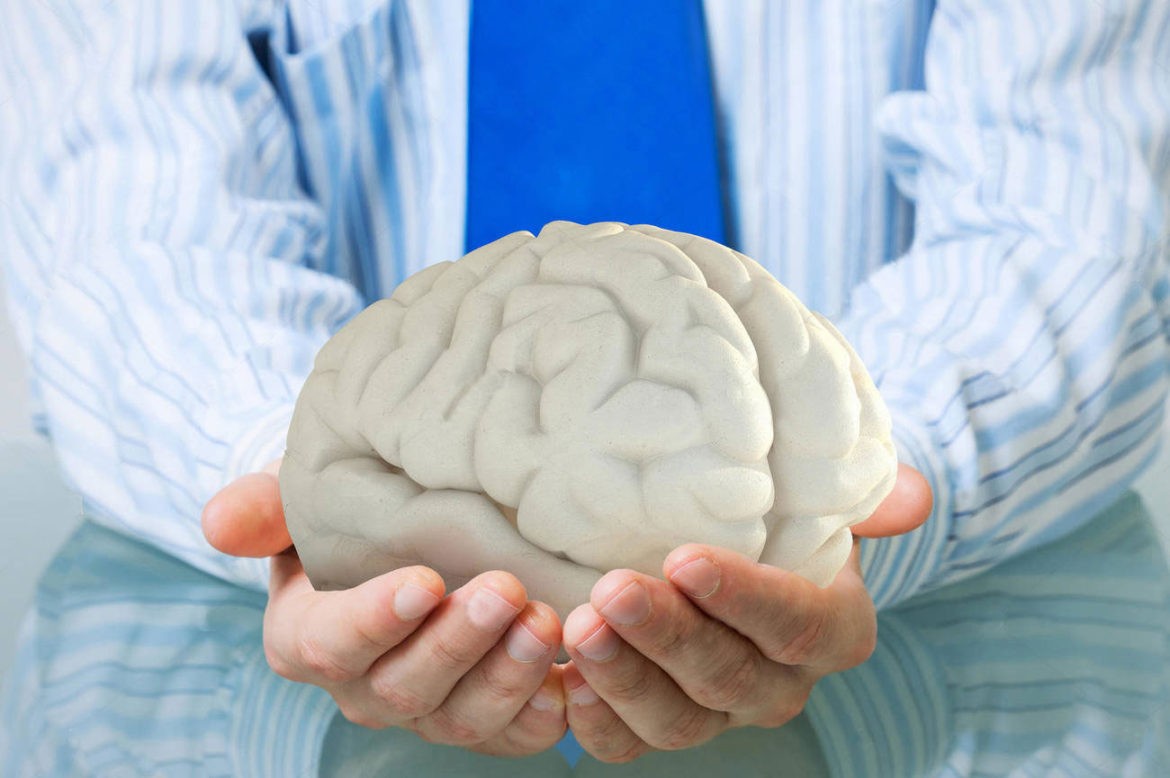Not many of us know that we have two brains. And that that second brain has a tremendous influence on our health.
Let me explain and share what steps you can take to take care of both brains so that you may live a healthy and happy life.
During the development of a fetus, the central nervous system (CNS) and a neural network called the enteric nervous systems (ENS) develop from the same tissues.
The ENS is a network of neurons (some 100 million – more than in the spinal cord!), neurotransmitters and proteins located in the lining of the esophagus, stomach, small intestine and colon, with many chemical and structural similarities to the brain. This is the reason it’s sometimes referred to as the “second brain” or “the belly brain”.
Combined with our “first” brain, the belly brain plays a key role in certain diseases throughout our bodies and influences our emotional health. The two brains send messages back and forth via the vagus nerve, although the belly’s brain is able to function independently of the one in our heads.
Its multitude of neurons send us clear messages, such as the “gut feeling” and “gut instinct” we sometimes experience and the “butterflies” or the “sinking pit” we feel in our stomachs when we’re excited or stressed.
Many of the brain-regulating chemicals in our cranial brain, are present in our belly brain as well. It produces dopamine and a large percentage of the chemical serotonin in our bodies. Needless to say, when we run low on these chemicals, we may experience emotional distress and insomnia.
The belly brain also communicates with our microbiome, the collection of microbes that helps break down food to release energy, fights off viruses and regulates much of our immunity.
Just as the belly brain signals the cranial brain, our brain messages our gut. For example, just thinking of eating can start the release of juices in our mouths or stomachs before we’ve taken our first bite.
Due to this interconnectedness, intestinal distress can be brought on by our lifestyle, toxic relationships, stress, and anxiety while digestive problems can cause emotional problems.
This makes it important for us to take care of both our brains.
Signs of potential problems in the gut include:
- Anxiety or depression
- Autoimmune diseases such as rheumatoid arthritis, lupus, celiac disease or Crohn’s
- Bloating, gas, chronic diarrhea, constipation, irritable bowel syndrome (IBS)
- Candida overgrowth
- Chronic infections
- Excessive fatigue or fibromyalgia
- Food allergies or intolerances
- Headaches, brain fog, memory loss
- Hormonal imbalances such as PMS
- Seasonal allergies or asthma
- Skin problems such as acne, eczema, rosacea, psoriasis or rash
- Sugar or carbohydrate cravings
If you experience any of these symptoms, discuss them with your doctor, as they could also be caused by other issues.
Steps you yourself can take ensure a healthy gut health include:
- Remove gut-damaging foods from your diet, these include the usual suspects: refined carbohydrates, sugar, poor fats, and processed foods
- Consider doing a food intolerance test and eliminating the foods you are intolerant to from your diet
- Increase your intake of fruits and vegetables, sprouted seeds, good fats and oils, and fermented foods such as yoghurt and sauerkraut
- Avoid antibiotics and other medications when possible
- Learn to manage stress
- Exercise regularly
- Avoid chemical toxins such as MSG, food preservatives, flavor enhancers, commercial cleaning products, heavy metals, pesticides and herbicides
- Limit your alcohol consumption
- Reduce the number of cigarettes you smoke or, better yet, stop smoking entirely
- Consider adding supplements to your diet such as probiotics, digestive enzymes, L-Glutamine and amino acid – do consult with your doctor before taking any supplements that may interfere with a health condition or medication you are taking
Both brains will thank you!

